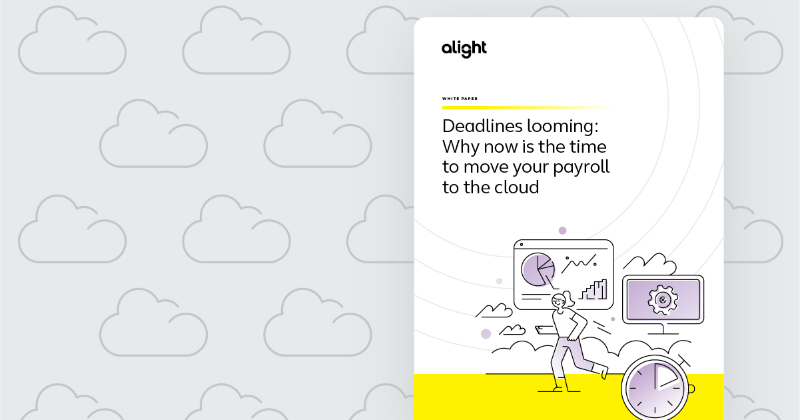
Technology has revolutionised the way we work, improving efficiency and communication in organisations. This has driven a digital transformation, where human capital management plays a crucial role in business effectiveness and profitability.
A notable trend is migration to the cloud, with 98% of companies expected to adopt cloud-based systems by 2030. This is due to the need to optimise IT processes, comply with regulations and reduce costs.
The transition to the cloud also improves employee engagement and ensures next-generation tools for human capital management.
Given the comprehensive benefits that the cloud offers for the entire organisation, it’s easy to see why more and more companies are considering migration in the coming year.
What options do companies have?
When we talk about the different options that are available, the first thing to know is that maintaining the status quo is no longer viable.
Faced with this situation, companies have several alternatives: modernise their installed base solution to maintain or update the user experience, relocate it to the private cloud or opt for the public cloud.

Of the three options, the least advantageous for companies and their employees is, without a doubt, the first since it is only postponing the inevitable. In the end, companies that choose to stay with their installed base solutions will be unable to compete with those that have taken the step to the cloud or will have to invest more to achieve it.
Benefits of migrating to the cloud for payroll management
Process automation and efficiency
Migration to the cloud and the adoption of specialised methodologies reduce the administrative burden on the Human Resources department.
This results in a significant decrease in manual tasks associated with managing payroll and other processes, thus freeing HR teams from routine and error-prone tasks.
Automation not only streamlines workflows, but also reduces the possibility of human error that could expose the company to security vulnerabilities.
Remote access and 24/7 availability
Data storage in the cloud is an essential solution for companies in all sectors. Not only does it allow a reduction in costs and an increase in the agility of usual operations, but it also takes a giant step in file protection.
Allowing remote access and 24/7 availability from anywhere, for all employees, the cloud also facilitates the storage of any file type in a digital infrastructure, along with the convenience of remote administration and backup that this entails.
Reduction of failures and financial risks
Payroll management, which represents a substantial part of a company's total cost, is often affected by manual processing errors. These errors can have a significant impact on the company's profits.
Automation not only reduces associated costs, but also minimizes the risk of fraud and exposure of sensitive data. Likewise, it ensures accurate and consistent financial management, improving the employee experience by providing accurate and timely payrolls.

Security and data protection risks
Security is a fundamental concern in any company. On-premise systems rely on internal technical skills to maintain security. If the staff lacks the necessary expertise or up-to-date knowledge, there may be risks.
In contrast, cloud service providers must comply with rigorous international security standards. They use advanced methods to protect customer data and comply with privacy regulations. This ensures a higher level of security and data protection, especially in an environment where user privacy is a priority.
Scalability and adaptability
Cloud systems are highly scalable, allowing businesses to easily adjust their capacity based on changing needs, without the rigidity of on-premise infrastructures.
No less important, the cloud provides workers with increased autonomy and access to information. Self-service portals allow them to access their payrolls, view their tax documents or directly change their income and tax withholding preferences. This translates into an enriched employee experience that positively impacts their levels of satisfaction and engagement.
Despite all this, it is understandable that many companies are reluctant to embark on a migration to the cloud, given the magnitude of the project, which can be overwhelming.
However, when considering its inevitability in the medium term and the multiple benefits it entails, both in efficiency and employee experience, pioneering this advancement confers a crucial competitive advantage that cannot be overlooked.
Achieving a seamless transition from an on-premise payroll solution to the cloud is possible, especially with the right partner who has the experience and team of professionals necessary to ensure the success of the transformation.

Learn more
Download our white paper
Deadlines Looming: Why now is the time to move your SAP on-premise payroll to the cloud


